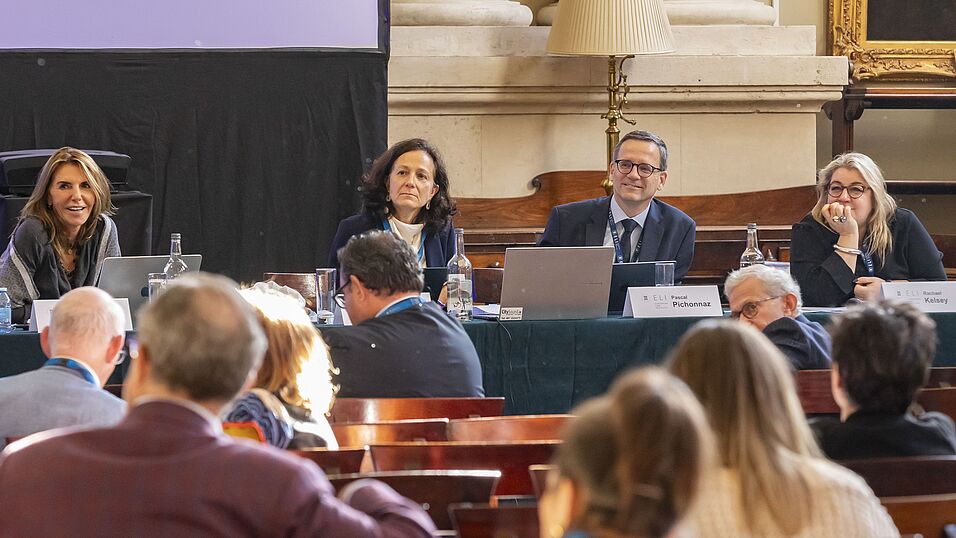In today’s globalised world, navigating cross-border family and succession law poses significant challenges that require innovative legal frameworks. ELI brought together leading experts to discuss the complexities of extrajudicial administration of justice, emphasising the need for harmonisation and cooperation among EU Member States. The panel was chaired by Pascal Pichonnaz (ELI President; Professor, University of Fribourg).
Elena Bargelli (Project’s Co-Reporter; Professor at University of Pisa), outlined the aims and Principles of the ELI project on Extra-Judicial Administration of Justice in Cross-Border Family and Succession Matters, explaining that the latter are based on a comparative analysis of 16 jurisdictions. The Principles have the overarching goal of providing legal clarity, consistency, and simplicity in cross-border family and succession cases, regardless of whether they are handled by courts or other authorities.
Elodie Mulon (Lawyer, CM&A – Chauveau Mulon Associés; Chair, CCBE Family and Inheritance Law Committee) focused on French out-of-court divorces handled by lawyers and formalised by notaries, without judicial involvement. While out-of-court divorces are successful in France, their recognition and enforcement abroad remain complex. French notaries perform only a formal review, making it difficult to classify such divorces as judgments under EU regulations. Among other things, Mulon also discussed the practice of issuing succession certificates. She welcomed ELI’s project as a way of facilitating cross-border divorces and succession matters.
Caterina D’Osualdo (Seconded National Expert (SNE), European Commission), noted the growing interest in shifting family and succession matters from courts to other authorities, but observed that the question remains whether current EU provisions on jurisdiction, recognition and enforcement of judgments are suitable for these changes. She also stressed that the organisation of the judiciary is the EU Member States’ competence, even in cross-border cases, therefore it is up to them to decide if certain tasks can be transferred to non-judicial authorities. Finally, D’Osualdo emphasised that any extrajudicial processes must respect fundamental rights such as the right to a fair trial, effective remedy, and the right to be heard. Decisions by non-judicial authorities should be appealable before a judicial authority.
Rachael Kelsey (President, International Academy of Family Lawyers) opined that the ELI project is extremely relevant in the context of the increasing global mobility of families and individuals. She provided a Scot’s perspective, highlighting a trend toward recentralising judicial authority, particularly in matters of status (eg, marriage and gender recognition), while maintaining flexibility regarding the consequences of that status (eg, financial settlements). She also provided an overview of areas in which Scotland has long embraced non-judicial approaches, such as children’s care, parental rights, or child support.
ELI remains committed to fostering dialogue and developing Principles that promote fairness and certainty in cross-border family law. We invite you to explore more about the ELI project on Extra-Judicial Administration of Justice in Cross-Border Family and Succession Matters here.

